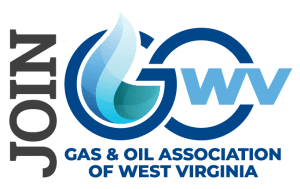Commonsense Energy Policies Support Environment | News, Sports, Jobs – The Intelligencer
As the curtains closed on West Virginia’s 2022 Legislative Session, it was easy to get caught up in partisan politics and focus on what separates rather than unites us. While the session has concluded, policies that leverage the innovation, talent, and resources found right here in West Virginia — while creating a healthier and more prosperous future for us all — are ones we can all agree upon.
And in fact, despite a push from opponents claiming otherwise, a majority of Americans (nearly 70%) believe the U.S. should keep a mix of energy resources including fossil fuels, a Pew Research report finds.
“Many Americans anticipate new problems for the country if it were to greatly reduce fossil fuel energy production while increasing renewable energy production,” the report says.
From Washington, D.C. to Charleston, there’s movement on the horizon setting West Virginia up for sustained economic growth as our energy mix evolves. And our congressional leaders on Capitol Hill (Rep. David McKinley and Sens. Shelley Capito and Joe Manchin) worked hard to secure funding for West Virginians in the bipartisan infrastructure bill.
These funds will not only improve our infrastructure and preserve our communities, but they are an investment in innovation and secure West Virginia’s place in the future of energy development.
For example, $8 billion in funds from the infrastructure bill were allocated to establish hydrogen and carbon capture and storage (CCS) hubs in places like Appalachia where there is abundant natural gas.
“I guess you can say that is a code word for West Virginia,” McKinley said.
Groundbreaking research to facilitate a hydrogen and CCS hub is already underway in Morgantown at the Department of Energy’s National Energy Technology Laboratory, bringing us to the forefront of new energy and environmental technology. Securing funding, incentivizing business development, and enacting other pro-growth policies are key to capitalize on these generational opportunities.
At the state level, legislation such as the bill heading to Gov. Jim Justice will create a state regulatory program for underground carbon dioxide storage and establish a framework that sets the tone for any potential hub concept in the region.
Workgroups, like the one Sens. Manchin and Capito, Congressman McKinley and Governor Justice launched, also promote the development of a hydrogen hub in West Virginia.
Utilizing abundant natural gas combined with carbon capture technology to produce what is called blue hydrogen could be a source of economic development and help heavy industry significantly cut emissions.
Sen. Manchin put it perfectly when he called this an “incredible opportunity to showcase how West Virginia can continue to lead the country — and the world — in advancing energy technologies and bring good-paying jobs to the state.”
Research, innovation, dedicated workers, and best-in-class energy resources are what drives West Virginia’s success, and our state has a significant role to play in the future of energy. We just need the right policies in place to foster that growth.
Charlie Burd is Executive Director of the Gas and Oil Association of WV (GO-WV) in Charleston. Learn more at GOWV.com.

